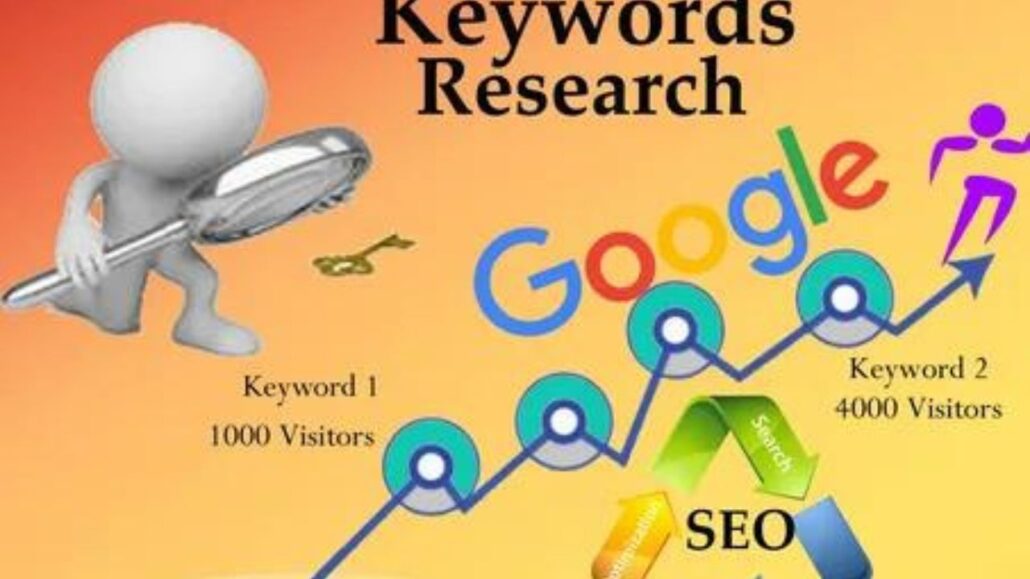In the ever-evolving landscape of digital marketing, two prominent strategies have emerged as stalwarts in promoting businesses and products: Influencer Marketing and Search Engine Optimization (SEO).
Both have unique characteristics and offer distinct advantages to brands seeking to increase their online presence and engage with their target audience.
In this comprehensive exploration of Influencer Marketing and SEO, we will delve into the intricacies of each strategy, dissecting their strengths, weaknesses, and applications.
By the end of this article, you will be well-equipped to make informed decisions about which approach suits your brand’s objectives and how they can complement each other for a well-rounded digital marketing strategy.
Influencer Marketing

Influencer Marketing is a relatively new but potent weapon in the digital marketing arsenal. It revolves around collaborating with influential individuals on social media platforms and other online channels to promote products or services.
The rise of social media and the ability to connect with audiences on a personal level has catapulted Influencer Marketing into the mainstream.
Here’s a closer look at its core components:
The Power of Personal Connection:
Influencers are often viewed as trustworthy figures who have built a strong rapport with their followers. Their recommendations can resonate with audiences, creating a sense of personal connection that traditional marketing struggles to achieve.
Targeted Reach:
Influencers often have niche followings. This can be advantageous because it allows brands to tap into specific demographics, ensuring that their message reaches those most likely to convert.
Content Creation:
Influencers excel in creating engaging content. Their posts, videos, and stories are tailored to appeal to their followers, which can be far more captivating than conventional ads.
Authenticity:
When executed well, Influencer Marketing comes across as more authentic than traditional advertising. Influencers promote products they believe in, giving credibility to the brand and fostering trust.
Quick Results:
Influencer Marketing can lead to swift results. A well-placed endorsement from the right influencer can drive immediate traffic and sales, making it an attractive option for brands seeking instant gratification.
However, Influencer Marketing also has its share of challenges:
Cost:
Partnering with top-tier influencers can be expensive, and even micro-influencers come with a price tag. This investment can be a barrier for smaller businesses.
Authenticity Concerns:
Some influencers may endorse products solely for monetary gain, leading to authenticity concerns. Brands must carefully vet their influencers to ensure a genuine partnership.
Lack of Control:
When collaborating with influencers, brands relinquish some control over the content. It’s essential to trust the influencer’s creative judgment, which can sometimes backfire.
Sustainability:
The success of Influencer Marketing can be short-lived. Trends change, and followers may lose interest in an influencer, making long-term success unpredictable.
Measurement and ROI:
It can be challenging to measure the direct impact of Influencer Marketing on ROI, making it hard to determine the effectiveness of a campaign.
SEO (Search Engine Optimization)
SEO is a tried-and-true digital marketing strategy that optimises a brand’s online presence to rank higher in search engine results. The goal is to increase organic, non-paid traffic to a website.
Here are the fundamental aspects of SEO:
Sustainable Visibility:
One of the most significant advantages of SEO is the long-term sustainability of results. Once a website ranks well for relevant keywords, it can maintain its position over time.
High Credibility:
Websites that appear on the first page of search engine results are often perceived as more credible and trustworthy by users. SEO can enhance a brand’s image in this regard.
Broad Reach:
SEO can target a broad audience. It isn’t limited to a specific influencer’s following, making it suitable for brands with diverse target demographics.
Cost-Effective:
Unlike Influencer Marketing, the costs associated with SEO are mainly upfront and ongoing maintenance. Over time, it is a cost-effective strategy.
Data-Driven:
SEO offers the advantage of extensive data and analytics. Brands can track their progress and measure the impact of their efforts with precision.
Long-Term Investment:
Unlike Influencer Marketing, SEO often requires a significant upfront investment and time to see substantial results. There are better choices for brands looking for quick wins.
Complexity:
SEO is a complex field, and it evolves constantly. Keeping up with the latest algorithm changes and best practices can be a daunting task.
Content Creation:
Effective SEO often relies on high-quality, relevant content. This requires ongoing content creation and optimization efforts.
Competition:
SEO is highly competitive, with numerous businesses vying for the top spots in search engine rankings. Beating out of the competition can be challenging.
Algorithm Dependency:
SEO success is subject to the whims of search engine algorithms. Changes in algorithms can significantly impact a website’s ranking, even if it’s been well-optimized.
Finding the Right Balance
Which strategy is the winner in the Influencer Marketing vs. SEO showdown?
The truth is that it’s not a matter of one being superior to the other. Instead, it’s about finding the right balance and understanding how these two strategies can complement each other. Here’s how:
Leverage Influencer Content for SEO:
Collaborate with influencers to create content that aligns with your SEO strategy. Influencers can produce engaging, shareable content that also includes valuable keywords and links. This can improve your website’s search engine ranking.
Influencer-Generated Backlinks:
Influencers often have their own blogs or websites. Securing backlinks from these influencer-owned platforms to your site can boost your SEO efforts. These high-quality backlinks enhance your site’s authority and credibility in the eyes of search engines.
Keyword Research:

Use influencer partnerships to gain insights into the language and terminology used by your target audience. These insights can inform your keyword research, helping you create SEO-optimized content that resonates with your audience.
Brand Image and Trust:
Influencer endorsements can enhance your brand’s trustworthiness, which indirectly affects your SEO Trust is a factor search engines consider when ranking websites.
Diversify Your Marketing Mix:
Don’t rely on a single strategy. Diversify your marketing mix to spread risks and increase opportunities. Use Influencer Marketing for short-term gains and SEO for long-term stability.
Measure and Adjust:
Both Influencer Marketing and SEO require constant measurement and adjustment. Use data and analytics to fine-tune your strategies for optimal results.
Case Studies: Influencer Marketing and SEO in Action
Let’s look closely at a couple of case studies to illustrate the power of balancing Influencer Marketing and SEO.
Case Study 1: An E-commerce Fashion Brand
A fashion brand wanted to promote a new clothing line. They collaborated with fashion influencers to create engaging content featuring their products. This Influencer Marketing campaign led to a significant increase in immediate sales and social media engagement.
However, the brand didn’t stop there. They repurposed the influencer-generated content for their website, optimizing it with SEO best practices. This led to a lasting improvement in their search engine ranking for relevant fashion keywords.
The brand achieved a balance between short-term gains from Influencer Marketing and long-term visibility through SEO.
Case Study 2: A Travel Booking Website
A travel booking website was struggling to rank for competitive travel-related keywords. To tackle this challenge, they implemented an SEO strategy that involved creating high-quality travel guides and blog content.
To boost the credibility and reach of their content, they partnered with travel influencers to review destinations and experiences.
These influencer reviews generated backlinks and referral traffic to the website, contributing to improved SEO rankings. The website found success by integrating Influencer Marketing with their SEO efforts.
Conclusion:
In the Influencer Marketing vs. SEO debate, there is no clear winner. Each strategy brings unique strengths and challenges to the table. The key to digital marketing success lies in the benefits of these intricacies and finding ways to leverage them effectively.
A smart approach is to recognize that Influencer Marketing and SEO can work harmoniously, supporting each other to achieve your brand’s goals.
Influencer Marketing can deliver quick wins and authentic engagement, while SEO offers the long-term visibility and credibility your brand needs.
By finding the right balance between these two strategies and ensuring they complement each other, you can create a robust and sustainable digital marketing strategy that propels your brand to new heights in the online world.
FAQ:
Is influencer marketing more effective than ads?
It depends on the specific goals and target audience. Influencer marketing can be more authentic and engaging, while traditional ads offer a broader reach.
Why is influencer marketing better than other marketing strategies?
Influencer marketing leverages trust and authenticity from influencers, which can resonate better with consumers compared to traditional advertising.
Why is influencer marketing more effective?
Influencer marketing often feels less intrusive, and influencers have a dedicated, engaged following, making the messaging more relatable and trustworthy.
How does influencer marketing affect SEO?
Influencer marketing can indirectly boost SEO by increasing brand exposure and generating backlinks through influencer collaborations and content sharing, potentially improving search engine rankings.



